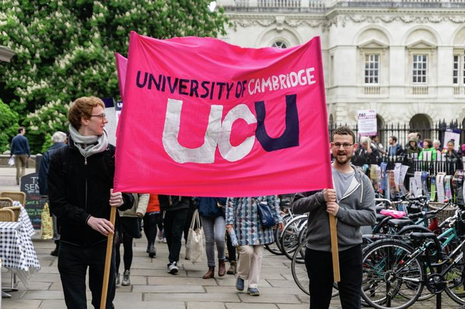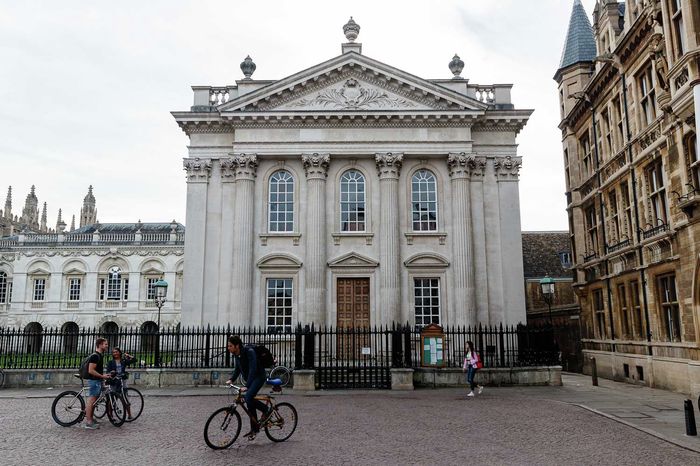UCU to vote on proposed strike action this year
UK university staff are to ballot from October 18 unless employers meet their demands, proposing industrial action before the end of the year

The University and College Union (UCU) confirmed today (22/09) that strike ballots at a total of 152 institutions, including the University of Cambridge, are to open on Monday 18 October if a resolution is not found to rows over USS pensions and pay, unsafe workloads, casualisation and equality failings. Ballots will close on 4th November, meaning strikes at Cambridge could commence as early as week five of Michaelmas term.
In a press release, the UCU said it “expects employers to return to negotiations with better offers in both disputes or face action that will disrupt the end of term and continue into the next one.” This comes after the union’s higher education committee met on Monday (20/09), when they confirmed the timetable of both ballots.
Support for the UCU has already been pledged by the National Union of Students (NUS), who are quoted as saying that “students will hold employers responsible” if university vice chancellors and employers do not come to “a negotiated settlement and address the fundamental issues repeatedly raised by staff.”
If the motion passes, proposed strikes at Cambridge will be the fourth of their kind in four consecutive years, beginning in February 2018 with 14 days of escalating industrial action over changes to pension schemes. In 2020, UCU staff undertook the largest strike action ever seen in UK higher education, with walkouts from thousands of staff across a total of 74 institutions.
This year the same two ballots will run as passed in 2020: one concerning USS pensions, and the second over issues related to declining staff pay, casualised contacts, unsafe workloads and equality failings.
The pensions ballot was catalysed by a Universities UK (UUK) vote last month to cut USS members guaranteed annual pensions by 35%, a decision which the UCU say was based on a “flawed valuation of the USS scheme conducted at the beginning of the pandemic as markets were crashing.”
Jo Grady, UCU general secretary said: “University staff propped up the entire sector during the pandemic, but they are now being thanked with huge cuts to their pensions, unbearably high workloads, and another below-inflation pay offer – all whilst universities continue to generate a handsome income from tuition fees.”
 News / Colleges charge different rents for the same Castle Street accommodation2 March 2026
News / Colleges charge different rents for the same Castle Street accommodation2 March 2026 News / King’s hosts open iftar for Ramadan3 March 2026
News / King’s hosts open iftar for Ramadan3 March 2026 Theatre / Lunatics and leisure centres 4 March 2026
Theatre / Lunatics and leisure centres 4 March 2026 News / Angela Merkel among Cambridge honorary degree nominees27 February 2026
News / Angela Merkel among Cambridge honorary degree nominees27 February 2026 News / News in Brief: waterworks, wine woes, and workplace wins 1 March 2026
News / News in Brief: waterworks, wine woes, and workplace wins 1 March 2026









